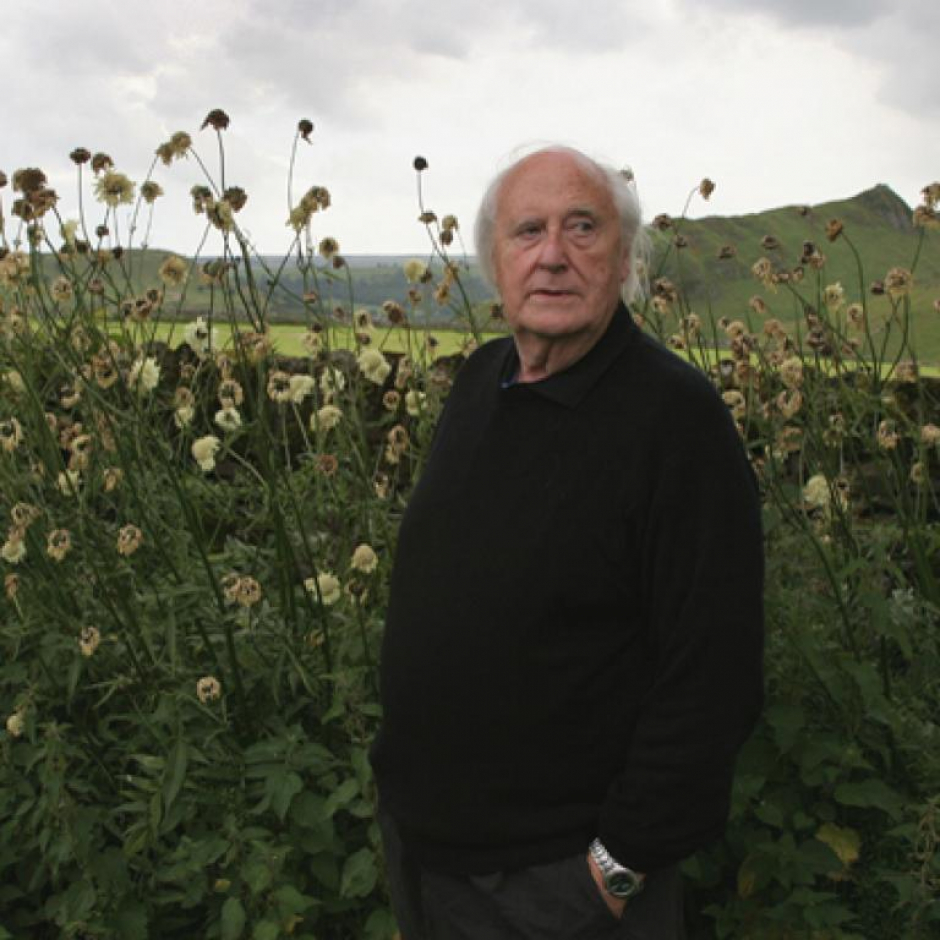Roy Fisher often gives his books gently punning titles. His Collected was entitled ‘The Long and the Short of it’. And Fisher’s New and Neglect’s punning on Selected brings back into circulation a range poems that have been fugitive from the Fisher canon, right from the beginning of Fisher’s publishing; along with a group of lovely new pieces. The book is organised into three sections, in reverse chronological order, so we begin with the newest pieces, from 2014 and finish with pieces from 1951. Fisher’s ever elegant, ever wry, afterword suggests that the neglect of these latter pieces was down to the fact that ‘the self that should have been present or implicit in what I wrote was something of a weak ankle. Required to bear weight it would shift stance and not be answerable.’
This statement of instability would suggest that the early poems here are not of a piece with the rest of Fisher’s ‘canon’. And this is, up to a point, true. The wry, elegant voice of Fisher’s prose is true of the poetry too, but, as he, himself, suggests, his writing did take a while to attain that singular voice; and that characteristic sense of subject matter. So the earliest poems in this book often portray slightly outré characters in somewhat over lurid situations. One such piece is ‘The Moral’ which begins with, ‘Home from the funeral, the horses and gilded cars,/ Prince Androgyne, searching for almonds, found/ A frog and ferret asleep in a jasper vase.’ And one other feature which Fisher was to reject was the use of rhyme. But even in these earliest of pieces, there is still a sense of the burgeoning phenomenology which lies at the centre of the very best of Fisher’s writing; as in the ending of ‘Piano’ dating from 1953, which ends ‘Far from the wall of pines and the steaming hill/ always the turns of the algae and the walking/ sands of the sea escape our square white fingers.’ That sense of the world in movement and that movement being in and around itself has often been at the centre of Fisher’s exploration ever since.
Reprinted from the middle of Fisher’s career is ‘Abraham Darby’s Bridge’ from 1970. It seems hard to understand why Fisher should have suppressed this. It is of a piece with the best of his poems, and begins ‘Forget the masterpiece itself/ it cracks with watching;/ a slow landslide/ shoves at the pier-stones// and the black spars/ of the ironwork built like joinery,/ cranking the arch out/ with a wader-bird’s leverage//.’ Not only is the tone and voice much more characteristic of the one which is so recognisable. The poem also has that Fisher’s characteristic address, beginning with the imperative, asking the reader actually not to do something, with the poem then moving on to a comment about the very act of looking. In both these ways, Fisher subverts his own project with a kind of intellectual irony which is, also, very true of a lot of his writing.
The book begins with ‘Signs and Signals’, Fisher’s contribution to a collection of poems memorialising the start of the First World War. In the poem, ‘Lance-Corporal (signals) Fisher W., Royal Fusiliers’ (Fisher’s grandfather?) sees the body of a German officer, which seems to have been accidently buried behind a trench wall which, itself, has ‘come away without warning’. For Fisher W., ‘it would be the most splendid figure of a man/ he’d ever see.’ This poem is slightly unusual in Fisher’s writing as it is about a male figure in his family. Usually, when Fisher’s poems do touch on his family, it is the female figures whom Fisher chooses to portray; it is Fisher’s prose which usually portrays the men. But Fisher’s technical achievement is to not only evoke the peculiar destruction of the First World War, but to show a tender reverence towards those whose lives were sacrificed. Fisher is also able to show a gentle absurdity in the ending of the poem, ‘Then on sunny days/ the pleasure of making the sharp flashes of his heliograph/ go skittering over the filth for miles.’
A book like this might have been a gathering of poems that the poet considered best ‘buried’, and which were, actually, better buried. On the other hand, a poet like Roy Fisher has often been a poet’s poet, with a range of admirers from J.H.Prynne to Carol Ann Duffy; and a couple of poems commissioned by Duffy are included here. Such is that approbation that Fisher can publish a book of poems which hoover up his fugitive pieces, and his admirers and acolytes, myself included, will buy it. And the wonderful editing skills of Peter Robinson and the bibliographical forensics of Fisher’s bibliographer Derek Slade, add a dimension to this collection, which nods towards a fascinating history of ‘alternative’ poetry publishing. Derek Slade’s bibliographical notes towards the end of the book give the publication details of each of the texts, and so magazines such as Samphire, Delta and Origin are acknowledged here.
But it does not take special pleading to say that this book is much more than an archaeology of British poetry and Fisher’s contribution to it. The widespread admiration for Fisher’s writing is undoubtedly because, for over sixty years, Fisher has given his readers an exploration of the world which is not only deeply recognisable, but constantly different and effortlessly enthralling. And the poems in this book are each and every one worth the reprinting.
(Author photo: Jemimah Kuhfeld)

